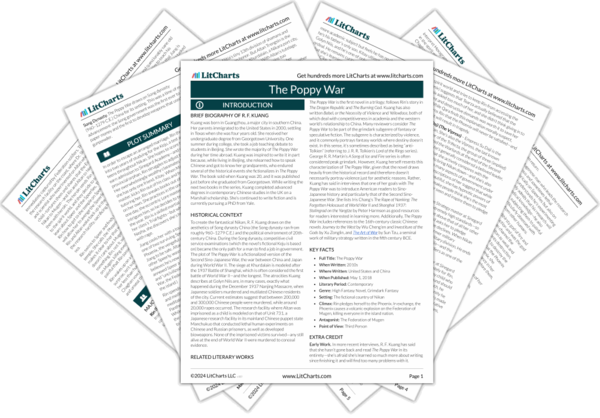Perhaps because the Cike are all misfits (and because they’re shamans, as most Speerlies also were), they offer some of the most sympathetic views of Speer and the genocide on the island. Here, it’s implied that Rin maybe didn’t make the right choice when she destroyed her uterus and thus, her ability to have children. But that implication also ignores the fact that Rin’s goals have, throughout the novel, been mostly about making her own decisions and forging her own path. Her loyalty is to herself, in other words, rather than to Speer.
